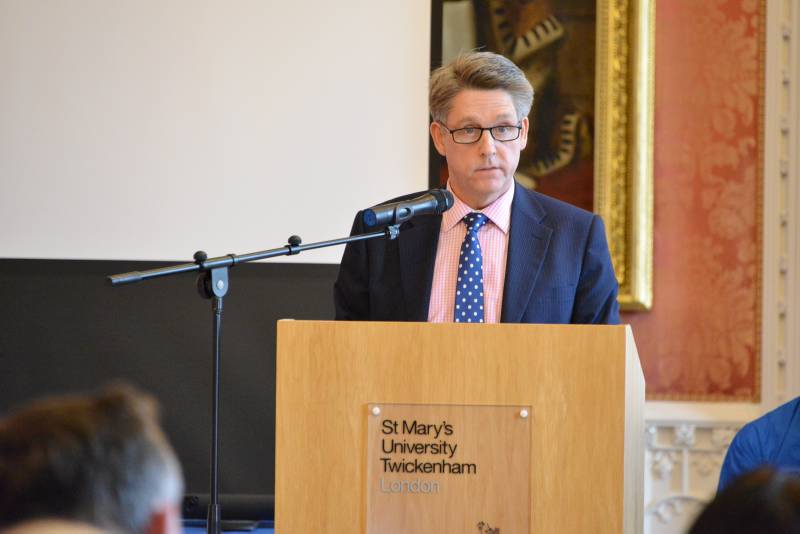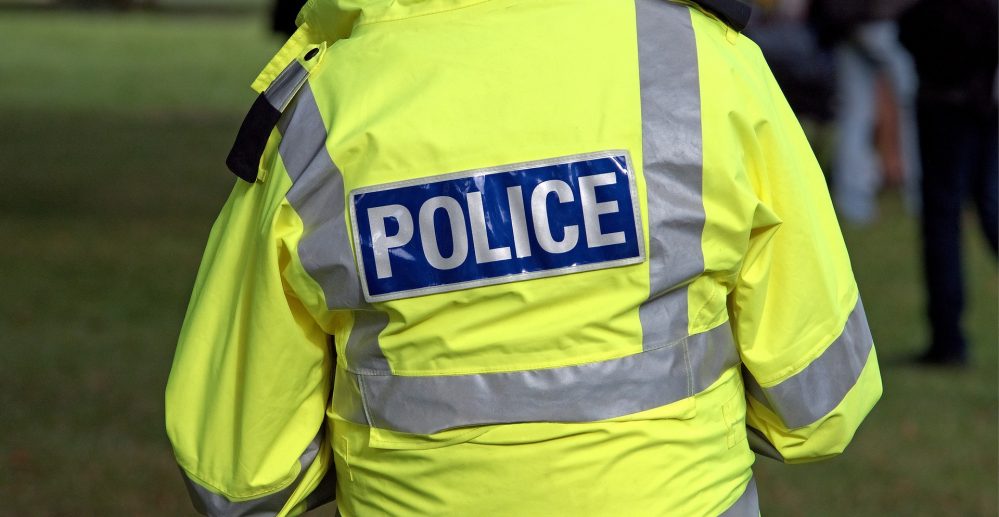Police forces are in a unique position in combating modern slavery. Not only must they investigate crimes, but they are also recognised as ‘first responders‘ under the National Referral Mechanism, the UK’s framework for identifying potential victims of trafficking and slavery. This means that they have a special responsibility to identify and refer potential victims. In practice, however, victims don’t always receive the support they need, writes EachOther Associate Editor Harvey Slade.
Earlier this week, the BBC reported that the conviction rate for reported slavery-related crimes is only two percent. Speaking to the BBC, the former anti-slavery commissioner Kevin Hyland said that one of the biggest issues was that few police forces have the issue of slavery in their policing and crime plans. Conversely, the present anti-slavery commissioner, Dame Sara Thornton, pointed to the fact that prosecutions and convictions have continued to go up each year.
But it’s not all about prosecutions. Equally important is ensuring that victims get the support that they need. As a first responder, the police force is in a unique position and has a special responsibility to ensure that victims are identified so that they can receive the support that they need.
A Lack of Awareness about Modern Slavery

Former Anti-Slavery Commissioner, Kevin Hyland. Image credit: Wikimedia Commons.
The police super-complaints system allows designated organisations to raise issues on behalf of the public about harmful patterns or trends in policing. There are presently two outstanding ‘super-complaints’ made against the police relevant to issue of modern slavery.
In March 2019, London-based charity Hestia made a super-complaint pointing to a spate of bad practice in the way that police deal with victims of slavery and trafficking. Speaking to The Guardian, Area Manager for Hestia’s Modern Slavery Response team, Ella Read, said that the super-complaint was about “allowing us to bring to light a systemic issue in the way that many frontline officers with insufficient experience and training in working with victims of modern slavery respond to these victims”.
The complaint refers to a lack of awareness of the issue in the frontline police officers who come face-to-face with victims, which is rooted in issues with training. While Hestia found that the majority of police forces have some form of mandatory training in place for staff, the choice of training courses is inconsistent and is largely absent from continuous professional development. The complaint also found that some officers continue to fail in their duty to refer individuals as victims of modern slavery.
In (some) cases, instead of referring victims to the National Referral Mechanism (NRM) or providing them with support, the matter was treated as an immigration referral.
Evidence from Focus on Labour Exploitation (Flex) before the Home Affairs Select Committee, quoted in Hestia super-complaint
The impact of bad practice can also negatively impact the recovery of victims. As the complaint outlines, “[i]t is key to the recovery of a person who has endured extreme trauma to be met with compassion and belief by the authorities”. It is therefore vital that victims’ exploitation is not sidelined in favour of immigration enforcement.
Data-Sharing With The Home Office

Image Credit: Unsplash / Glenn Carstens-Peters.
Police forces prioritising immigration enforcement was also an issue raised in an earlier super-complaint, made in December 2018 by Liberty and Southall Black Sisters. They argued that the practice of police forces passing on victim data to the Home Office for immigration purposes has helped create a culture where victims of crime without leave to remain in the UK feel uncomfortable coming forward to the police, preventing the victims receiving the support that they need and also preventing prosecutions taking place.
One of the key issues evidenced in Liberty and Southall Black Sisters’ super-complaint is the fact that insecure immigration status is, very often, used as a form of coercion by abusers against victims. This is highly common in domestic abuse cases, where perpetrators use the victim’s immigration status to “exert absolute control over them”. The complaint also acknowledges, however, that the same issues are prevalent in human trafficking and slavery cases, where “traffickers can leverage the victim’s fear of being reported to the authorities as an undocumented migrant to perpetrate abuse, prevent them from seeking help or going to the police”.
Modern Slavery: Victims First And Foremost

Image credit: Unsplash / Matheus Ferrero.
Around the same time as Liberty and Southall Black Sisters submitted their super-complaint, the National Police Chiefs’ Council published new guidance on the issue in which it reiterated the necessity for police forces to treat those reporting crimes as victims, “first and foremost”. However, the super-complaint stated there were continued concerns over what this meant in practice, given that the same police guidance states that if “it becomes apparent that the victim is also suspected of being an illegal immigrant, it is wholly appropriate that the officer in the case should contact Immigration Enforcement”.
It is clear that, much too often, victims are still only seen by their immigration status. Speaking to the Guardian in March, Karen Staunton of Duncan Lewis Solicitors spoke of how, in the case of one of their clients, he self-reported to a police station saying that he had been trafficked to the UK and forced to work. However, he was not referred into the National Referral Mechanism, “but was instead referred to immigration enforcement, and shipped off to detention the next day”. This victim is not alone, given that research recently found that over 500 victims of slavery and trafficking were detained in 2018.
Police forces are in a unique position to ensure that victims of slavery are channelled into the support mechanisms built into the National Referral Mechanism, rather than detention centres. At the root of this is building a stronger understanding of the indicators of trafficking and ensuring that victims are not only seen by their lack of immigration status and truly are treated as victims, first and foremost.
Want to learn more on this topic?
- Read about how the Home Office is obliged to support victims under the Trafficking Convention.
- Find out more about the Modern Slavery Act.
- Read about how child slavery is increasing as gangs are using young people as drug mules.







